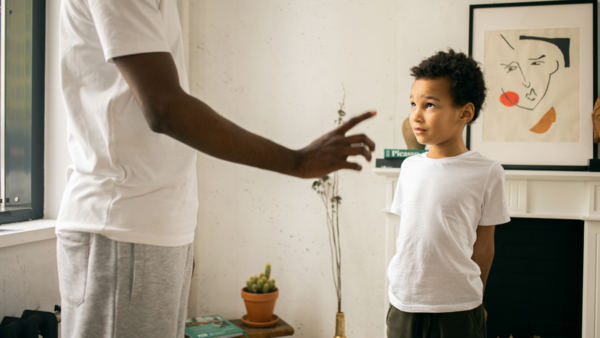5 light methods to self-discipline a child with out yelling or hitting

Self-discipline shouldn’t be about punishment. It’s about instructing. And but, the concept that kids solely hear when yelled at or {that a} slap will make them behave nonetheless quietly lingers in lots of households. It’s principally handed down by generations, believed to be “robust love.” However the reality is: fear-based self-discipline could cease a toddler within the second, nevertheless it doesn’t educate them the ‘why’ behind their actions. What leaves an enduring impression is connection, not management. Listed here are 5 nurturing ways in which right behaviour with out elevating a voice—or a hand.
Pause. breathe. Let the storm cross earlier than responding
There’s a preferred perception that self-discipline should be fast. “Act quick or they’ll by no means be taught,” they are saying. However the reality is, within the warmth of the second, feelings—not classes—prepared the ground. And when feelings conflict, no person wins.What works higher is a small pause. A number of sluggish breaths. A second of silence. It reveals that massive emotions are okay—however they don’t have to manage the second. This small pause turns into a strong instance. Over time, kids start to reflect this calmness, even throughout their very own meltdowns.

Kneel all the way down to eye stage, it adjustments every thing
It might sound too easy, however there’s deep magic on this one. Standing tall whereas talking can really feel intimidating to little ones. It’s straightforward to overlook how tiny and overwhelmed they will really feel when the grownup world looms above.Kneeling or sitting subsequent to them immediately shifts the vitality. Eye contact turns into gentler. Tone softens naturally. It doesn’t simply invite higher listening—it builds belief. Kids don’t resist as a result of they’re “naughty.” Usually, they resist as a result of they really feel unheard or unsafe. Coming all the way down to their stage removes that invisible wall.
Decrease the voice, typically, a whisper speaks the loudest
The louder the voice, the extra severe the scenario. However that’s hardly ever true. Yelling typically sends kids right into a stress response—struggle, flight, or freeze. In that second, their brains aren’t studying; they’re simply attempting to outlive.

Self-discipline shouldn’t be about management; it’s about instructing. Kids want steerage to know limits, however the method issues. Harsh punishments could pressure obedience, however additionally they create concern, insecurity, and even long-term behavioral points.
Oddly sufficient, whispering throughout tense conditions grabs consideration sooner than shouting. It feels surprising. And it invitations curiosity as a substitute of concern. A delicate tone reveals that management hasn’t been misplaced. It says, “I’m nonetheless right here, I’m nonetheless calm, and we will deal with this collectively.”
Use phrases like “I really feel…” as a substitute of blame
Phrases like “Why would you do this?” or “Look what you’ve performed!” carry blame. They make kids really feel like the issue, moderately than a part of the answer. Over time, these phrases chip away at confidence and emotional security.A greater method is sharing private emotions—gently. For instance: “I really feel actually apprehensive when toys are thrown. They might break or harm somebody.” This shift turns the second right into a dialog as a substitute of a confrontation. Kids be taught empathy by listening to how actions have an effect on others. It’s not prompt, nevertheless it’s highly effective and lasting.
Take a quiet break, collectively or aside, however all the time with love
Time-outs are sometimes misunderstood as “punishments.” However in a loving dwelling, they will change into moments of reflection or consolation. Typically, when issues really feel too loud inside and outside, a quiet break helps everybody reset.For some kids, being held gently in a peaceful hug works higher than any lecture. For others, a little bit time alone—with a favorite e book, delicate music, or a comfortable nook—does the trick. The purpose shouldn’t be isolation, however self-regulation. And understanding that errors don’t make love disappear.
